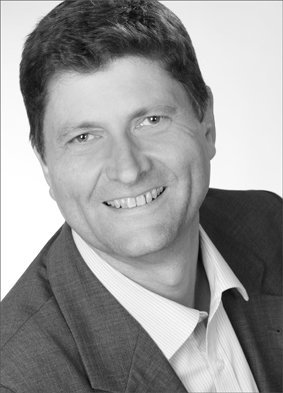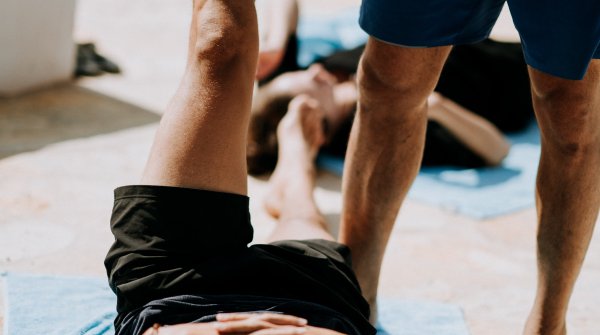
Performance diagnosticians and experts in training planning analyze individual physical performance and give recommendations for the planning, implementation, analysis, and correction of training. Always with the goal of optimizing performance and maintaining health and resilience.
Because performance diagnostics and training planning are finding their way into more and more sports, as well as in the semi-professional field, the corresponding experts with a combination of competence in medicine, analysis and sports expertise are in demand.
Andy Gugenheimer (head of sportyjob.com and cooperation partner of the ISPO Job Market) and recruitment consultant Gunther Schnatmann give tips on how to find your way into the coaching staff of an elite club or an individual sports star.
Naturally, a degree in sports science or sports medicine is an excellent foundation for analyzing athletes and their performance as well as developing their custom training plans. The best known are tests such as lactate diagnostics, where metabolic behavior is analyzed under physical stress.
However: Classic sports scientists, such as the German Sport University Cologne, tend to aspire to the position of head coach. Graduates of medical programs can lucrative livings as physicians or instead become team physicians. For those only interested in training planning, there are also already Bachelor’s programs towards that goal.
Like the “Scientific Principles of Sports” at the Technical University of Munich (optionally with the “Diagnostics and Training” Master on top). Or Sports Sciences at the University of Wuppertal. There, applicants with the right professional qualifications can also gain access without a high school diploma, under certain conditions.
But further education academies – including those located abroad – also issue certificates after a several-month course that are at least helpful for newcomers. For example, the Academy for Sports & Management (AFSM) in Salzburg (“General Training Science”) with basic knowledge in sports biology, sports medicine, general training theory, movement theory, and biomechanics, performance diagnostics, and training planning.

Sure, anyone who has prepared for a marathon for months using specifically graduated training units will feel much more at home in the “training cosmos” of a top athlete than a couch potato with purely theoretical interest.
Having your own athletic activity – whether an endurance sport or a high-level competition – is therefore an excellent and welcome foundation for a career as a training analyst or planner.
State and private educational institutions also award bonus points to these sorts of people when it comes to admission to their coveted programs. According to the Technical University of Munich, the best prerequisites for your Master's program in “Diagnostics and Training” are “your own sporting activities, work or training as a coach, which are helpful in that the link between science and practice can be realized more easily.”
Today, sports computer programs measure all values that an athlete produces in training: starting and sprinting speed, endurance, or performance curves. Everything is networked, analyzed, and optimized with everything else. In addition, training institutes such as iQ athletik employ specialists who now look after athletes via online coaching. A growing market.
Those interested should absolutely have a high affinity for digitization. They need to stay constantly up to date on what new apps are available for performance measurement, what programs the competition is using to analyze their athletes, and so on.
Despite all this digitization, the performance diagnostician and training planner can’t just be a nerd only happy about new data in splendid isolation. Their job is closely linked with the other members of the coaching staff; it won’t work without teamwork. The head coach’s tactics have to be taken into account in the training plan, as well as the mental coach’s latest findings on the team’s morale.
Speaking of: Analysts and planners also need direct contact with the athletes themselves. No sophisticated training plan is going to make progress if the athlete isn’t convinced and only does half-hearted work.
Empathy, and often persuasiveness, are sought-after qualities in this professional field.
Ultimately, despite high demand, no training graduate in performance diagnostics and training planning is guaranteed to land in a top club. Not a problem. These qualifications in assessing physical performance, and thus possible increases in performance, can be used in many ways.
At health insurance companies, for instance, to take over the conception and supervision of health programs. Or in the police and military, where physical readiness for duty plays an important role. Ultimately, even in the wellness sector and top hotels, where more and more demanding health promotion programs are being set up.
Whoever enters this professional field should be flexible and keep their eyes on other – highly attractive – fields of application. There are worse career prospects than “just” working as a consultant for rich amateur athletes in five-star hotels instead of in the Champions League.
Thus, training and qualifications as a training analyst and planner offer great opportunities with a wide range of possible applications! Anyone interested should find out exactly which program or academy is best suited to their previous education and goals.

 Know-HowSports therapist: prevention helps
Know-HowSports therapist: prevention helps
- Awards
- Mountain sports
- Bike
- Fitness
- Health
- ISPO Munich
- Running
- Brands
- Sustainability
- Olympia
- OutDoor
- Promotion
- Sports Business
- Textrends
- Triathlon
- Water sports
- Winter sports
- eSports
- SportsTech
- OutDoor by ISPO
- Heroes
- Transformation
- Sport Fashion
- Urban Culture
- Challenges of a CEO
- Trade fairs
- Sports
- Find the Balance
- Product reviews
- Newsletter Exclusive Area
- Magazine






